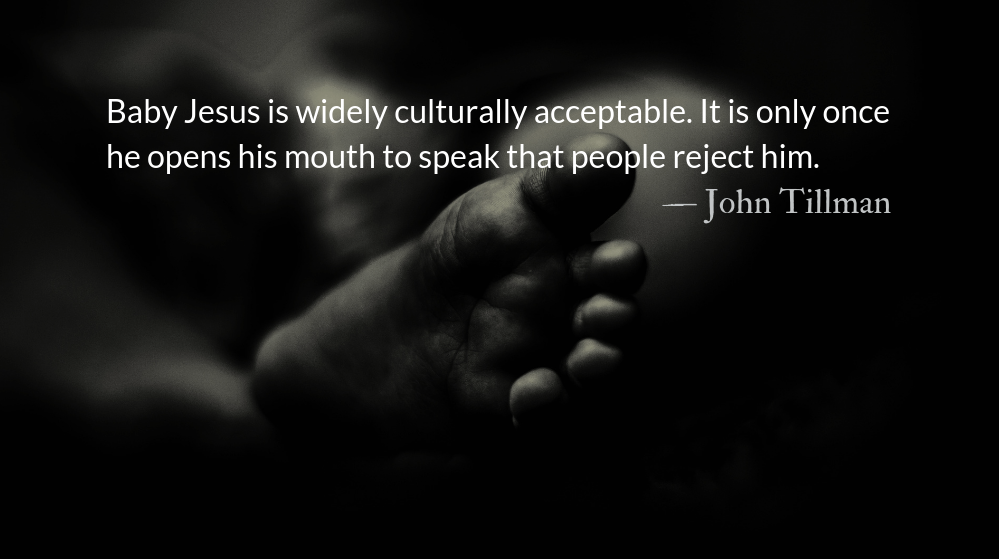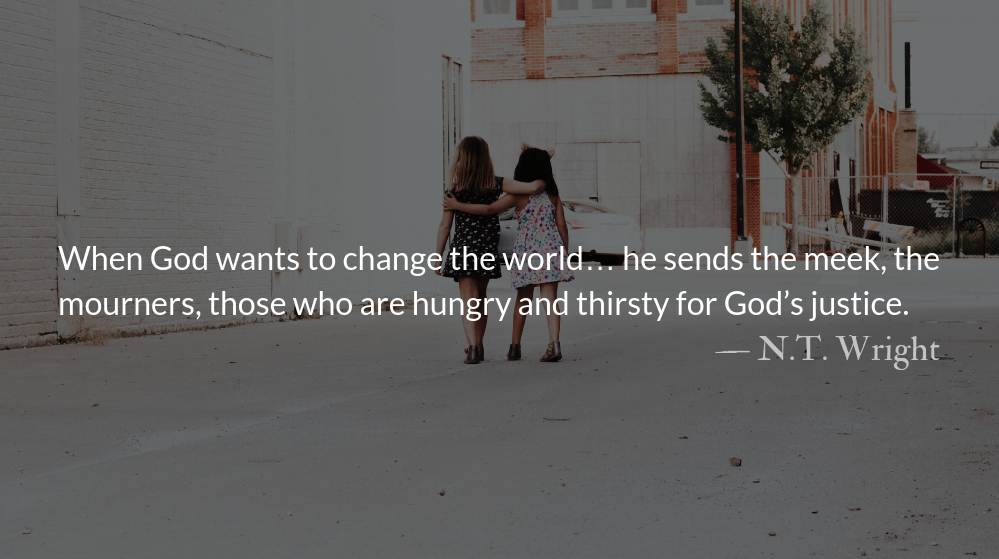Luke 4.41
Moreover, demons came out of many people, shouting, “You are the Son of God!” But he rebuked them and would not allow them to speak, because they knew he was the Messiah.
Reflection: Confessing Christ, Full Grown
By John Tillman
Very few individuals, before the resurrection, stated out loud their belief in who Jesus truly was. And most of them were women.
Simeon, and Anna are the first. But it is somewhat easier to proclaim a baby the Messiah. Baby Jesus as Messiah isn’t making any demands. This is why Baby Jesus is widely culturally acceptable. It is only once he opens his mouth to speak that people reject him.
It is more difficult to stand before a man who, by inaction, allowed your brother to die and call that man the Messiah, as Martha did.
It is more difficult to admit that the man who confronted you with your sexual sin is the Messiah, as the Samaritan woman did.
It is more difficult to speak what has been revealed to you by God when you don’t fully understand it yet, as Peter did when he confessed, “You are the Messiah.” Peter showed that he didn’t fully understand, only a verse or two later when he rebuked Jesus for talking about his upcoming crucifixion.
Like Peter, we have a tendency to want to tell Jesus what to do instead of doing what he tells us. Jesus corrected Peter for not being concerned about what God, what Jesus, was concerned about, and he would say the same to us today.
Peter, and the rest of the disciples, despite being exposed to so much otherworldly power, were concerned about earthly kingdoms and power. Even after the resurrection, moments before his ascension, they asked him, “Lord, are you at this time going to restore the kingdom to Israel?”
We must stand and confess, not just the Christ Child and the childish, temporal hopes we may have for this world, but confess Christ the Crucified King. We must stand before the man who says, “In this world you will have trouble,” and accept it as he did, “for the joy set before him.” We must stand before the man who said, “take up your cross,” we must, like him set our face, “like a flint,” toward our sacrifice.
When we pray “your kingdom come”, the kingdom must come in our hearts before it can be realized into the world.
The kingdom among us, is realized in our work together.
The kingdom among us is realized as we sharpen each other.
The kingdom among us is realized when each part of Christs’ body does its work.
Prayer: The Call to Prayer
Love the Lord, all your who worship him; the Lord protects the faithful, but repays to the full those who act haughtily. Be strong and let your heart take courage, all you who wait for the Lord. — Psalm 31.23-24
– Prayer from The Divine Hours: Prayers for Autumn and Wintertime by Phyllis Tickle.
Prayers from The Divine Hours available online and in print.
Today’s Readings
Amos 9 (Listen – 3:08)
Luke 4 (Listen – 5:27)
Additional Reading
Read More about Beyond Admiration
The difference between an admirer and a follower still remains. The admirer never makes any true sacrifices. He always plays it safe…he renounces nothing, gives up nothing, will not reconstruct his life, will not be what he admires, and will not let his life express what it is he supposedly admires.
Read More about Doing All Things Well :: Readers’ Choice
As we follow Christ, we are meant to take on this mantle of confidence and comfort. This is not a confidence in our ability or a comfort in our own power, but an indwelling, filling, and freeing expression of the Holy Spirit with us.
Support our Work
Each month over 22,000 Park Forum email devotionals are read around the world. Support our readers with a monthly or a one time donation.











